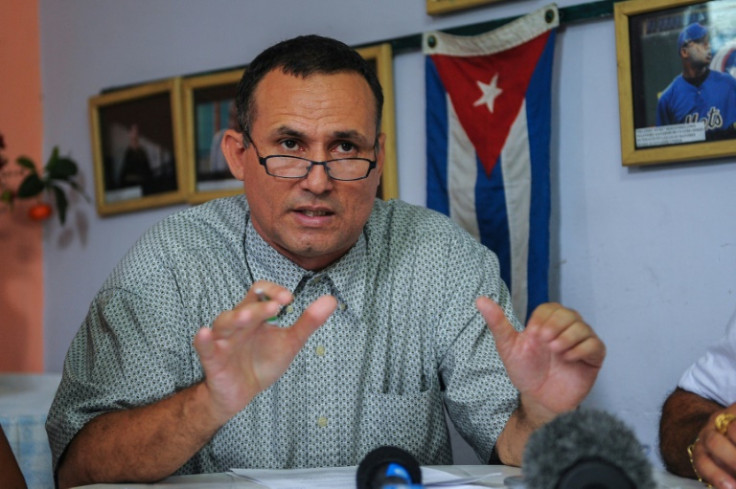Cuban Court Revokes Parole Of Two Prominent Dissidents

Cuba's Supreme Court said Tuesday it had revoked the parole of opposition leader Jose Daniel Ferrer who was released under a landmark deal Havana struck with former US President Joe Biden.
Ferrer and Felix Navarro, another prisoner released from prison in January, had "failed to comply with the provisions of the law during the probation period to which they were subjected," the court said in a statement.
Ferrer, who has been in and out of prison on the communist-run island for years, was granted parole in January after his latest stint of more than three years behind bars.
The 54-year-old was the most high-profile of the prisoners that Cuba released after Biden agreed to remove the country from a US list of terrorism sponsors.
Ferrer's sister Ana Belkis Ferrer Garcia, based in the United States, wrote on X Tuesday that security forces had stormed the headquarters of the UNPACU opposition organization run from her brother's home.
They took her brother, his wife Nelva, their son "little Daniel Jose" and other activists "to an unknown location," she added.
"We demand his immediate release and that of all detainees and political prisoners," said the message.
Ferrer and Navarro have both been declared prisoners of conscience by Amnesty International.
Cuba says its opponents are "mercenaries" in the pay of the United States.
Havana claims it has released all 553 people it had agreed to free under the deal with Vatican-mediated deal with Biden, including 231 considered political prisoners by rights groups.
Most of the 231, including Ferrer, were rounded up in a crackdown on mass protests against the Cuban government in July 2021.
Biden's successor, Donald Trump, has since reinstated Cuba on the terror list.
Ferrer and Navarro were among 75 opposition members arrested in a three-day period of repression in March 2003 known as the "Black Spring."
Members of the group received sentences of six to 28 years on charges of working with a foreign power. Ferrer got 25 years.
Both men were freed in 2011, along with 130 other political prisoners, following mediation by the Catholic Church.
Later that year, Ferrer founded UNPACU, one of the most active opposition organizations in the one-party state.
He was sent back to prison following the protests of July 2021.
Since his release this year, he has repeatedly criticized the communist government on social networks.
He runs a canteen at his home for people in need, funded by Cubans abroad.
He claims the authorities despise his social activism for highlighting the poverty in which many live.
The Council for Democratic Transition in Cuba, an opposition group, in a statement denounced what it called a "coordinated operation by state security aimed at neutralizing two of the most important leaders of the Cuban dissident movement."
The Supreme Court said Tuesday Ferrer had ignored two summons to appear in court.
"Not only did he not appear, but he also announced via his social media profile, in blatant defiance and violation of the law, that he would not appear before the judicial authority," it added.
His fellow dissident Navarro, 72, was also released in January under the Vatican-mediated deal.
But the court said he had left his municipality seven times without seeking a judge's permission "in blatant violation of the law."
It also claimed the men "maintain public ties" with the US chief of mission in Cuba, Mike Hammer.
Writing on X, Cuba's deputy foreign minister Carlos Fernandez de Cossio said Cuba had "the right to protect itself from US aggression."
© Copyright AFP 2024. All rights reserved.




















